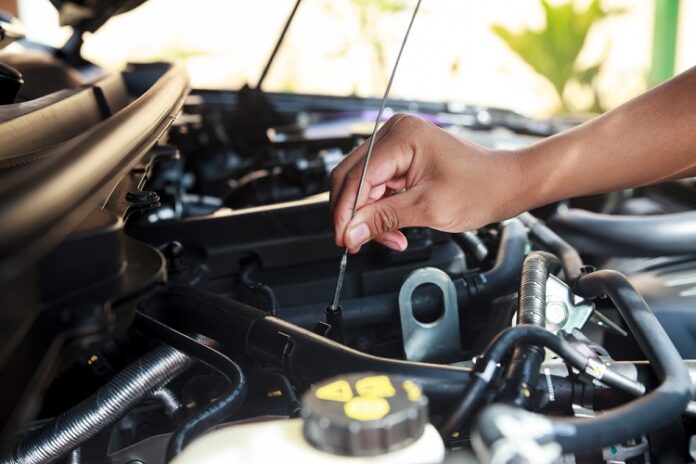Car maintenance is crucial for keeping your vehicle running smoothly and ensuring your safety on the road. By following a few essential maintenance tips, you can extend the lifespan of your car and minimize the risk of unexpected breakdowns. Put your performance and the safety of your car in your own hands! HetrainsShetrains.com is the place to go to learn the vital auto maintenance advice that every motorist should be aware of.This article will explore some key car maintenance practices that every driver should know.
Regular Oil Changes
One of the most important maintenance tasks for your car is regular oil changes. Engine oil lubricates the engine’s moving parts, reducing friction and preventing damage. Over time, the oil breaks down and becomes less effective, which can lead to engine problems. To ensure optimal performance, it’s recommended to change the oil every 3,000 to 5,000 miles or as per the manufacturer’s instructions.
Check and Maintain Tire Pressure
Proper tire pressure is crucial for safety, fuel efficiency, and longevity. Regularly check the tire pressure using a pressure gauge and inflate or deflate the tires as needed. Underinflated or overinflated tires can affect handling, braking, and fuel consumption. Additionally, don’t forget to inspect the tires for signs of wear and rotate them regularly for even tread wear. Don’t get caught off guard by unexpected problems with your vehicle! Prepare yourself by learning the fundamentals of vehicle maintenance. Car Insurance Quotes Net is a great resource that you should look into.
Monitor Fluid Levels
Various fluids, such as coolant, brake fluid, transmission fluid, and power steering fluid, play vital roles in the functioning of your car. Regularly check the fluid levels and top them up if necessary. Using the correct fluid type, as the manufacturer recommends, is important to ensure optimal performance and avoid potential damage.
Inspect and Replace Filters
Filters, including the air filter, fuel filter, and cabin air filter, help keep the engine and interior of your car clean. Over time, these filters can become clogged with dirt and debris, affecting performance and air quality. Inspect the filters regularly and replace them as needed to maintain optimal efficiency and protect the engine.
Keep an Eye on the Battery
A dead battery can leave you stranded, so monitoring its condition is essential. Check the battery terminals for corrosion and clean them if necessary. Additionally, ensure the battery is securely mounted and inspect the cables for any signs of damage. If your battery is old or weak, consider replacing it to avoid unexpected breakdowns.
Test the Lights and Signals
Properly functioning lights and signals are crucial for visibility and safety. Regularly check all exterior lights, including headlights, taillights, brake lights, and turn signals, to ensure they work correctly. Replace any burnt-out bulbs promptly to maintain optimal visibility on the road.
Brake Inspection and Maintenance
Brakes are one of the most critical safety components of your car. Regularly inspect the brake pads, rotors, and brake fluid levels to ensure they are in good condition. If you notice any signs of wear or a decrease in braking performance, have your brakes inspected by a professional mechanic and replace the worn-out parts if necessary.
Check and Replace Wiper Blades
Clear visibility is vital for safe driving, especially during rain or snow. Inspect your wiper blades regularly for signs of wear, such as streaking or skipping. If the blades are not providing a clean and clear wipe, replace them to maintain optimal visibility in all weather conditions.
Keep the Exterior Clean
Regularly washing and waxing your car helps protect the paint from environmental elements and maintain its appearance. Additionally, promptly clean off any bird droppings, tree sap, or road salt, as they can damage the paint surface if left for an extended period. Don’t forget to clean the wheels and tires to remove dirt and brake dust buildup.
Interior Maintenance Tips
Maintaining a clean and organized interior enhances your driving experience. Vacuum the carpets and seats regularly to remove dirt and debris. Clean the dashboard, steering wheel, and other surfaces using appropriate interior cleaning products. Periodically empty the trash and use air fresheners to keep the interior smelling fresh.
Safe Driving Practices
Besides regular maintenance, practicing safe driving habits can significantly improve your car’s longevity. Avoid aggressive driving, excessive speeding, and sudden braking, as they can stress various components unnecessarily. Smooth acceleration, gradual braking, and obeying traffic rules will help keep your car in good condition and reduce the risk of accidents.
Storage and Seasonal Maintenance
If you plan to store your car for an extended period, taking specific measures to protect it is important. Clean the car thoroughly, apply a coat of wax, and use a car cover to shield it from dust and moisture. Fill up the gas tank to prevent condensation and add a fuel stabilizer. Additionally, inflate the tires to the recommended pressure and consider using jack stands to take the weight off the tires.
Conclusion
Regular car maintenance is essential for preserving your vehicle’s performance, safety, and longevity. Following the tips outlined in this article, you can stay on top of your car’s maintenance needs and enjoy a smooth and trouble-free driving experience. Remember, a well-maintained car saves you money on repairs and provides peace of mind. Find out how to drive without any hassles by reading this! Find out the crucial information about car maintenance that every driver ought to know. Taxi-Bmw provides knowledge to all of the relevant data.









